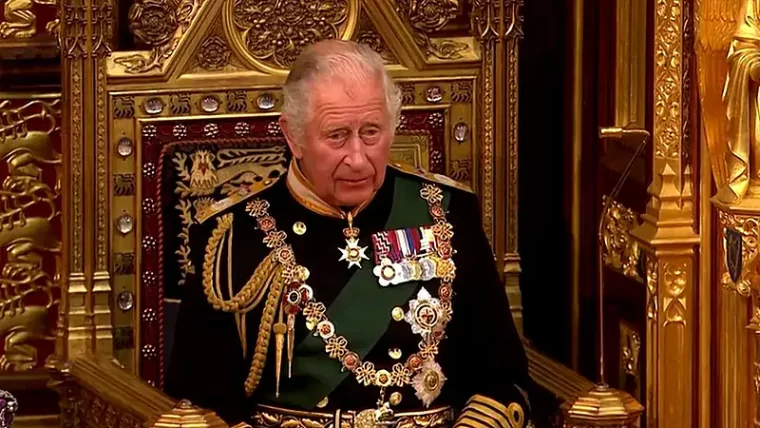 By November 1948, the postwar “Baby Boom” in the United States had been roaring along for nearly three years. But America’s media spotlight didn’t go whole-hog on babies until that November, the month that saw the young Queen Elizabeth give birth to her first, the British empire’s future king.
By November 1948, the postwar “Baby Boom” in the United States had been roaring along for nearly three years. But America’s media spotlight didn’t go whole-hog on babies until that November, the month that saw the young Queen Elizabeth give birth to her first, the British empire’s future king.
New first-time moms in the USA basked in this royal motherhood glow. Many of those moms with newborn sons — mine included — would spend the next decade or so only half-jokingly assuring one and all that their little one would no doubt be sitting in the White House just about the same time little Charley made it to his throne.
None of us US-born sons of ’48, as life turned out, ever made it into the White House. And poor Charles, for his part, ended up having to wait for his throne far longer than anyone in 1948 likely ever imagined. But something else unexpected played out in that long interim. Poor Charles became fabulously rich.
Now UK royals, of course, have always been wealthy, but their relative wealth status changed over time as the transition from feudal times to modern industrial capitalism left royalty looking distinctly up to the wealthiest of their subjects. This new corporate “royalty” made its millions relentlessly squeezing average people, and by the 1940s — on both sides of the Atlantic — the “subjects” of these kingpins had had enough. They mobilized and created societies truly willing to “tax the rich.”
In the UK, the tax rate on top-bracket income would hit 98 percent during World War II and not drop down from that lofty level until 1953, and then only to 95 percent. The US top tax rate that same year trailed only a few percentage points behind.
None of this had much of an impact on young Queen Elizabeth. She had inherited a couple castles and estates from her dad the late king and, as queen, held control over the Duchy of Lancaster, then a stash of mainly land-based wealth. But no one saw Elizabeth as any symbol of spectacular grand fortune — or expected her reign to become a time when grand fortune could flourish.
That perspective would change. By 1977, the year of the queen’s Silver Jubilee, the political winds had begun to take a distinctly rich people-friendly turn. In 1979, outspoken free-marketeer Margaret Thatcher would become the UK prime minister, and her political soulmate Ronald Reagan would win the White House in 1980. Both moved quickly to cut taxes and regulations that burdened the rich. Both would attack — aggressively — the trade unions that stood up for working people.
Young Prince Charles would soon be exploiting the myriad money-making opportunities this new era offered. By tradition, Charles held the Duchy of Cornwall, historically mostly a collection of assorted estates. Charles would modernize this stash of royal wealth, in the process turning his “landed gentry pile of land,” notes analyst Laura Clancy, into “a commercial business” with over 150 staffers wheeling and dealing Charles to ever grander fortune.
Continued next page
(308 VIEWS)

